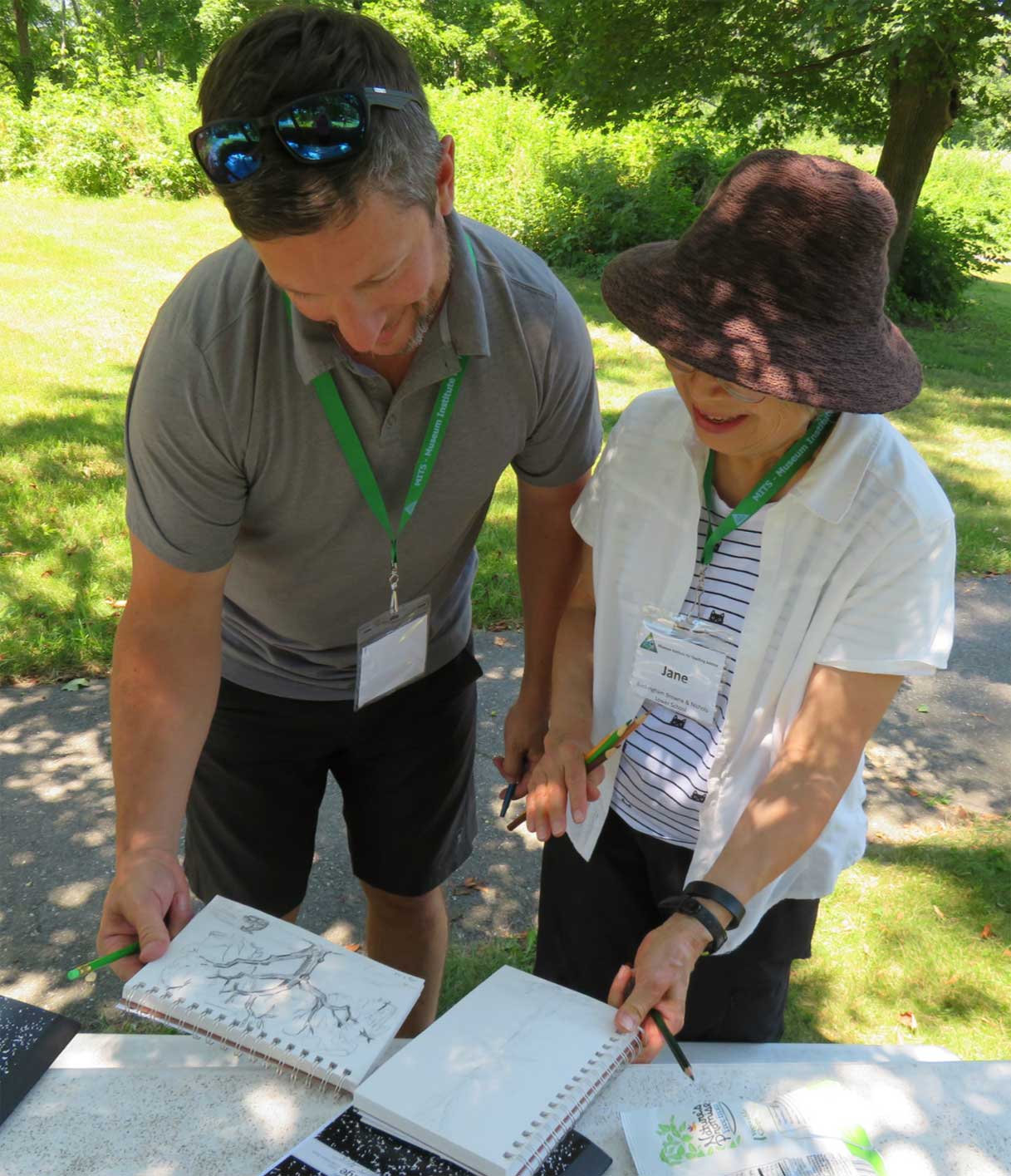Tuesday, September 18, 2018
For Immediate Release
Educators Experience Place-Based Pedagogy
in the MetroWest Region of Massachusetts
Lincoln, MA – From July 9 – 13, elementary and middle school teachers from the MetroWest Region of Massachusetts met for a Museum Institute for Teaching Science (MITS, Inc.) 2018 Summer Professional Development Institute. With a theme of “Landscapes for Learning”, this one-week course engaged educators in place-based pedagogy by utilizing the local resources of Mass Audubon, The Walden Woods Project, and the Concord Museum. Influenced by the writing of Henry David Thoreau, teachers explored tools and strategies for teaching science through literacy, and enhanced their repertoire of inquiry-based activities.
Why use landscapes for learning? During the course, the educators witnessed the deep connection people have to places. At Mass Audubon Headquarters and Drumlin Farm, participants gained perspective by viewing landscapes as artists, writers, and as educators. Trekking out into the wilderness and using the writings of Thoreau as inspiration, teachers investigated the geology, biology, hydrology, and history of the area in and around Walden Woods. Throughout the week, educators captured their field excursions through science journaling and experienced hands-on, minds-on learning in nature’s classroom.
Educators searched for clues of changes to the landscape with The Walden Woods Project staff. Looking to the earth, they noted how the social and natural history of the place are intertwined. They challenged their observational skills as they looked for evidence that Brister’s Hill was once inhabited, and eventually determined that much of the socio-environmental history of the area could be understood through the soil. With educators from the Concord Museum, participants investigated artifacts in Walden Woods and drew conclusions about the evolution of the town’s center.
Teachers gained a deeper understanding of strategies for using place-based and inquiry-based learning by taking on the role of students during the institute. As they surveyed soil samples, investigated the environmental health of local wetlands, and discussed succession in forests, participants gathered evidence of the importance of using landscapes for learning and developing their students’ interest in science through literacy tools. They enhanced their toolkit of inquiry investigations to utilize in their science classroom or in their schoolyard. There was also time for sharing their experiences with each other and the course instructors.
“It’s always great to learn from the valuable insights, wisdom, and perspectives of our MITS classmates.” – Elementary teacher
In a few short weeks, these teachers will come together again for a callback session that will reinforce their learning and provide them with a chance to discuss the implementation of inquiry-based lessons in their classrooms. By meeting again during the school year, teachers have an opportunity to return to the big ideas of the summer, collaboratively brainstorm solutions to practical problems, and share ideas for the future.
###
The Museum Institute for Teaching Science specializes in providing hands-on, minds-on, inquiry-based STEM professional development for formal and informal educators. For more information, visit www.mits.org or call 617-328-1515.



